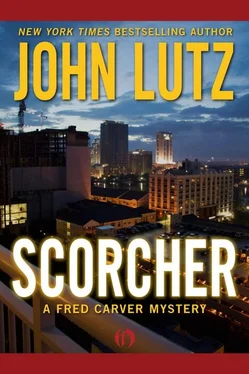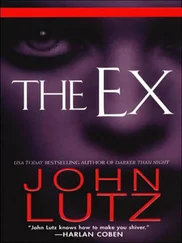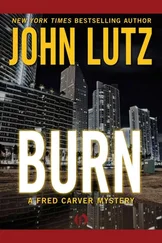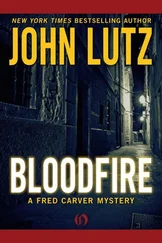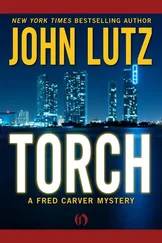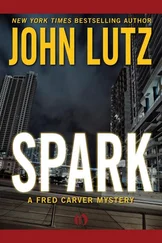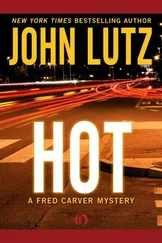John Lutz - Scorcher
Здесь есть возможность читать онлайн «John Lutz - Scorcher» весь текст электронной книги совершенно бесплатно (целиком полную версию без сокращений). В некоторых случаях можно слушать аудио, скачать через торрент в формате fb2 и присутствует краткое содержание. Жанр: Триллер, на английском языке. Описание произведения, (предисловие) а так же отзывы посетителей доступны на портале библиотеки ЛибКат.
- Название:Scorcher
- Автор:
- Жанр:
- Год:неизвестен
- ISBN:нет данных
- Рейтинг книги:5 / 5. Голосов: 1
-
Избранное:Добавить в избранное
- Отзывы:
-
Ваша оценка:
- 100
- 1
- 2
- 3
- 4
- 5
Scorcher: краткое содержание, описание и аннотация
Предлагаем к чтению аннотацию, описание, краткое содержание или предисловие (зависит от того, что написал сам автор книги «Scorcher»). Если вы не нашли необходимую информацию о книге — напишите в комментариях, мы постараемся отыскать её.
Scorcher — читать онлайн бесплатно полную книгу (весь текст) целиком
Ниже представлен текст книги, разбитый по страницам. Система сохранения места последней прочитанной страницы, позволяет с удобством читать онлайн бесплатно книгу «Scorcher», без необходимости каждый раз заново искать на чём Вы остановились. Поставьте закладку, и сможете в любой момент перейти на страницу, на которой закончили чтение.
Интервал:
Закладка:
Elsing smelled like tobacco. He motioned for Carver to sit in the comfortable chocolate brown chair, then sat down behind his desk heavily, as if his feet had been hurting. That might explain the sloppy, comfortable shoes. The pipe rack holding half a dozen well-used wood pipes explained the tobacco smell. The doctor bowed his head, then looked up and smiled expectantly. Carver figured in another couple of years the crown of Elsing’s head would be as bald as his own. Tough shit.
“You wanted to talk about Paul Kave?” Elsing said. Right to business; time was something not to be wasted, and the way not to waste it was to take control of the conversation immediately.
“That Beethoven?” Carver asked, pointing to the ceramic bust.
“Uh, yes it is.”
“I wondered.”
“Mr. Carver-”
“Paul’s family’s hired me to try to find him before the police do,” Carver said.
“Paul’s my patient, Mr. Carver. Naturally I respect the confidential nature of that relationship. There isn’t much I can, or will, tell you about him.”
“Have the police talked to you?”
“Yes. I told them no more than was necessary.”
Carver felt himself getting irritated despite all the greenness. “Doesn’t the Hippocratic oath take a backseat to murder?”
“Of course. And I cooperated with the police. But I don’t think Paul killed anyone. This entire affair is some sort of tragic confluence of circumstance, and I don’t want to add to the misdirection.”
Carver felt like giving the good doctor a lesson in admissible evidence, but he didn’t want to lose him. “Then we’ll speak only in generalities, Dr. Elsing. Tell me about schizophrenia. The kind Paul Kave suffers from.”
Elsing’s lips curved into a momentary smile. The lines swooping from the sides of his nose deepened. “You make it seem so easily categorized,” he said in his soft, soft voice. “There’s a lot not known about schizophrenia, Mr. Carver. It usually strikes its victims when they’re young, between the ages of fifteen and twenty-five, and it lasts for decades. It gets progressively worse if not controlled. Seldom better. It’s still one of medicine’s most elusive mysteries. And an illness that’s prompted a great many public misconceptions. Read the papers about the search for Paul Kave and you’ll see what I mean. Schizophrenia isn’t at all as most of the media assume.”
“What causes it?”
“That we don’t understand precisely. One theory is that it has to do with dopamine, a chemical that passes between nerve endings in the brain. In a so-called normal person, stress causes the dopamine levels to drop. This lessens the intensity of the signals that pass between nerves. Not so with schizophrenics. Their brain activity is heightened tremendously by stress. The chemical imbalance causes various symptoms, among them imaginary voices, irrational thoughts. The world can seem like an ominous madhouse to an advanced schizophrenic.”
“So it’s really a physical illness that causes mental problems.”
Elsing shook his head slowly, as if to say it was impossible to give Carver a course in psychiatric medicine in five minutes. “The chemical imbalance triggers certain reactions, Mr. Carver. And as I said, this is one of several theories. We do know that three million people, more than one percent of the population, will at some time suffer from the disease during their lives. It would behoove us to learn much, much more about it.”
“What sort of treatment was Paul’s?”
“Analysis and, when he was entering a bad period, medication.”
“What kind of medication?” Carver asked. He saw Elsing notice his piqued interest and wasn’t sure if the doctor would answer. The muted ringing of a phone filtered in from the outer office; Beverly caught it on the third ring.
“Chlorpromazine. It regulates dopamine levels and lessens the patient’s delusions.”
“Does it regulate paranoia?”
“Yes, you might say that. And as you surmise, paranoia is one of the disease’s symptoms.” Dr. Elsing was pressing on the desk with his fingertips. “Are you assuming Paul killed those people in a fit of paranoia, Mr. Carver?” His fingertips were white, not green.
“It’s a possibility.”
“Not at all likely. Paul could get paranoid at times, even mildly aggressive. But I don’t believe he’s a killer.” He shook his head slowly and looked glum. “Few of the misconceptions about schizophrenia make life easier for the disease’s victims.”
“A police psychiatrist thinks it’s possible that Paul was extremely paranoid and killed his victims to avenge some slight or imagined wrong done to him.”
“That chain of thought is consistent with Paul’s potential behavior, except for the degree of paranoia and the killing part. Maybe he’d insult or even punch someone for this imagined wrong, but taking human life is a different matter. I doubt he’d react with anything near that intensity.”
Carver persisted. “The police psychiatrist says it’s possible.”
Elsing looked as if he had a bad taste in his mouth. He didn’t want to call the police psychiatrist a fool, but that was what he thought. That’s how it was with inexact sciences. “Possible? Sure, Mr. Carver. But the odds and the illness suggest it isn’t probable. I know. Paul Kave is my patient, not the patient of some. . police employee who’s never even met him.”
“Or grown to like him.”
Elsing smiled again. It was a kind of male Mona Lisa smile, not giving away much. “You’re something of a psychoanalyst yourself, Mr. Carver.”
“That’s what keeps me working. Were some of Paul’s problems caused by his relationship with his father?”
Elsing chewed on the inside of his jaw for a moment, then said, “I don’t think I’ll answer that.”
“How often was Paul receiving medication?”
“Once a day. Capsules.” Elsing anticipated Carver’s next question. “He has enough medication to last another few days.”
“And when he runs out?”
Elsing tugged at a button on his coat sleeve. “I don’t know. Paul’s a brilliant and resourceful boy, but there’s no way for him to obtain the drug without a prescription.”
“Would Paul recognize the effects of his illness setting in once he’s off medication?”
“At first he would. But after a while delusion would seem consistently real to him. It’s something like being an alcoholic, Mr. Carver. After the first few drinks an alcoholic thinks he’s sober and able to thread needles or drive a car or work calculus. Everything is altered, and a private reality takes charge.”
Carver handed out his second business card of the morning. “If Paul contacts you for more capsules, will you phone me?”
“The police have already requested that.”
“I’d like you to call me before the police, Dr. Elsing. For Paul. After all, we both want to help him.”
Elsing nodded ever so slightly. He wasn’t dumb enough to agree concretely, but Carver suspected the doctor would phone. He was obviously fond of Paul Kave. He stood up. “I’m sorry, but I’ve got a patient waiting, Mr. Carver.”
“I noticed her in the outer room. Marie.”
“I specialize in helping young people.”
“It must be difficult to keep your objectivity,” Carver said, “and not feel for them too deeply.”
“Every analyst has to learn to cope with that prospect, Mr. Carver. The way to relieve a patient’s anguish isn’t to become part of the problem.”
Carver decided he liked Dr. Elsing. A practical man doing battle with shadows. Carver knew how that felt. He sank his cane into the carpet, braced on it, and levered himself up out of the deep, comfortable chair. “If Paul took this medication long enough, would it possibly cure him?”
Читать дальшеИнтервал:
Закладка:
Похожие книги на «Scorcher»
Представляем Вашему вниманию похожие книги на «Scorcher» списком для выбора. Мы отобрали схожую по названию и смыслу литературу в надежде предоставить читателям больше вариантов отыскать новые, интересные, ещё непрочитанные произведения.
Обсуждение, отзывы о книге «Scorcher» и просто собственные мнения читателей. Оставьте ваши комментарии, напишите, что Вы думаете о произведении, его смысле или главных героях. Укажите что конкретно понравилось, а что нет, и почему Вы так считаете.
